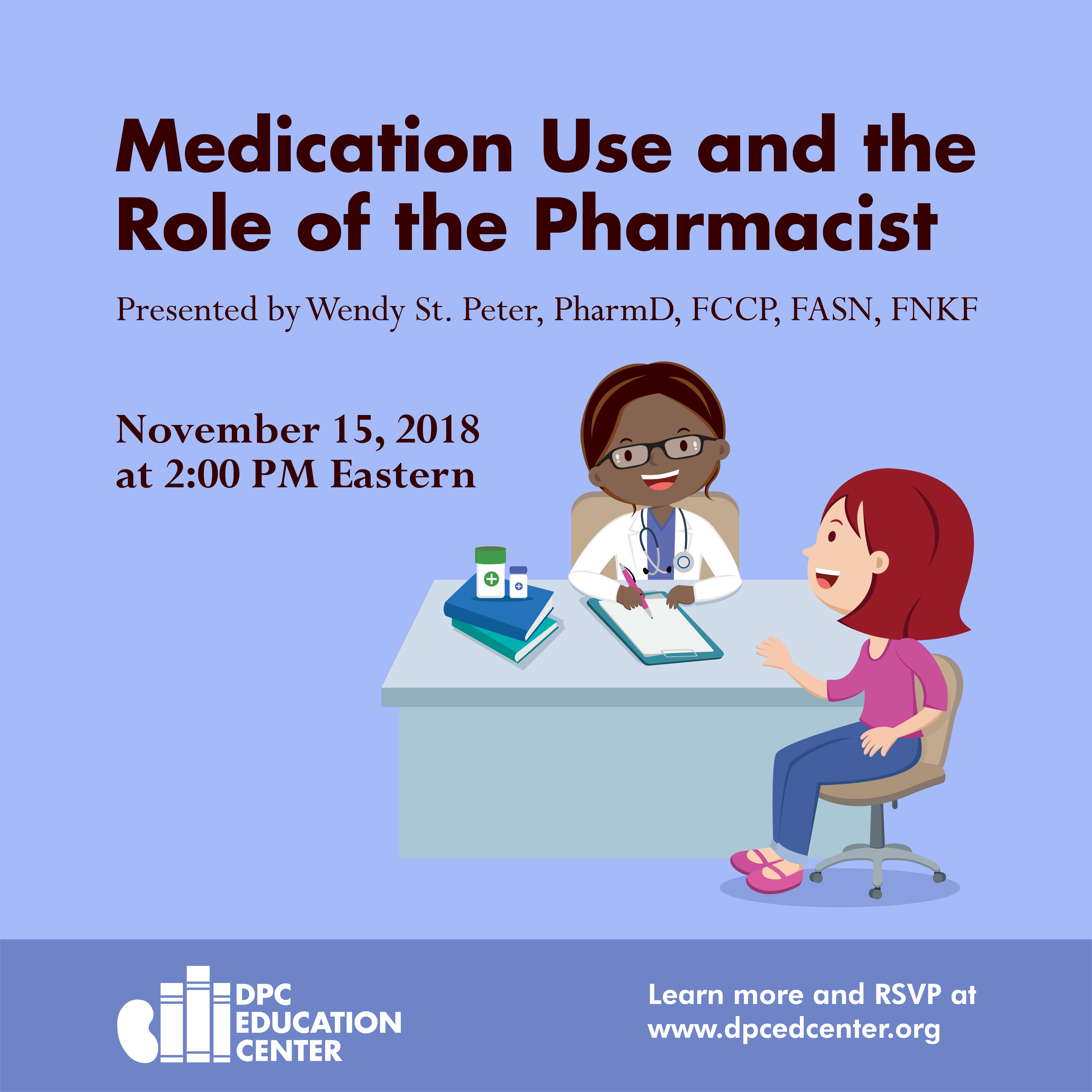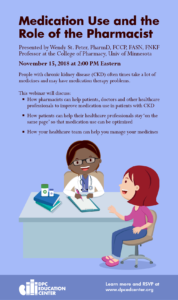

Medication Use and the Role of the Pharmacist
November 15, 2018 @ 2:00 pm - 3:00 pm EST
Presented by: Wendy St. Peter, PharmD, FCCP, FASN, FNKF
Professor at the College of Pharmacy, University of Minnesota
People with chronic kidney disease (CKD) often times…
- have other medical conditions
- require many medicines
- have several doctors that prescribe medicines
- go to more than one pharmacy to get medicines
It can be hard for patients, doctors and other healthcare professionals to keep track of all the medicines their patients with CKD take. The issues above can lead to medication therapy problems (MTPs). MTPs can….
- reduce the good effects of medicines
- lead to safety issues (e.g., bad reaction to a medicine)
- result in non-adherence to medicines
In this webinar, Dr. St. Peter will discuss:
- how pharmacists can help patients, doctors and other healthcare professionals to improve medication use in patients with CKD
- how patients can help their healthcare professionals stay ‘on the same page’ so that medication use can be optimized
- what works best for you (i.e., How can your healthcare team best help you manage your medicines?)
View the Recording:
Additional Videos Mentioned During Presentation:
- Patients Stories of Pharmacists’ Care
- Expert Shares Key Steps in Staying Healthy with Kidney Disease
- Pharmacist Discusses Medications for Kidney Disease
About the Presenter:
Wendy St. Peter is a Professor at the College of Pharmacy, University of Minnesota. She worked at Hennepin County Medical Center in Minneapolis for many years with patients that had end-stage renal disease or earlier stages of CKD. Currently she uses big databases like Medicare to look at medication use in patients with chronic kidney disease. Her research is focused on improving medicine safety and effectiveness in these patients. She is on the Board of Directors of the Kidney Health Initiative, which is a collaboration between the American Society of Nephrology and the Food and Drug Administration. KHI’s mission is to encourage development of therapies (medicines, devices) that patients with CKD feel would be most important to them.

